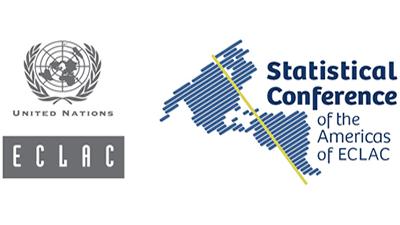In a context of accelerated geopolitical, economic and technological changes, with pressing phenomena such as migration and climate change, the countries of the region – via the Economic Commission for Latin America and the Caribbean (ECLAC) –are working on a strategic plan to integrate statistical and geospatial data and thereby make progress on achieving the 2030 Agenda for Sustainable Development, the Executive Secretary of the United Nations regional organization, Alicia Bárcena, said today in Aguascalientes, Mexico.
“Humanity will need all available instruments to transform our development model, meaning our patterns of production, consumption and coexistence,” Bárcena sustained at the inauguration of the seminar Towards the Integration of Statistical and Geospatial Information, held in the framework of the Ninth Meeting of the Statistical Conference of the Americas (SCA), which began this Tuesday and will conclude on Thursday, November 16.
Other participants in the seminar included Rolando Ocampo, Co-Chair of the United Nations Expert Group on the Integration of Statistical and Geospatial Information and Vice President for Economic Information at Mexico’s National Institute of Statistics and Geography (INEGI); Floribel Méndez, Manager of Costa Rica’s National Institute of Statistics and Censuses; and Aditya Agrawal, Director of Data Ecosystems Development of the Global Partnership for Sustainable Development Data (GPSDD).
They were joined by Eduardo de la Torre, Director of Planning of INEGI’s Office of the Vice President for Economic Information; Rodrigo Barriga Vargas, Secretary General of the Pan American Institute of Geography and History (PAIGH); Miguel Ángel Cárdenas, Director of Geostatistics at Colombia’s National Administrative Department of Statistics (DANE); and Álvaro Monett, Regional Expert on Geospatial Information Management of ECLAC’s Statistics Division.
The strategic plan, Bárcena said, will take as its reference the Global Statistical Geospatial Framework and will be aligned with the Sustainable Development Goals (SDGs). “We want to arrive at the next meeting of the SCA with important progress that can be put into practice and that allows us to prepare for the 2020 round of censuses,” she stated.
During her speech, ECLAC’s most senior representative praised the permanent dialogue and joint work carried out by ECLAC and the UN Committee of Experts on Global Geospatial Information Management (UN-GGIM) and the Regional Committee on UN Global Geospatial Information Management for the Americas (UN-GGIM: Americas).
Bárcena added that “this convergence between the statistics community and that of geographers represents an unprecedented achievement. This paradigm shift is possible thanks to the challenges relating to implementation of the 2030 Agenda.”
In July of this year, ECLAC created a geospatial area within its Statistics Division, which Rolando Ocampo highlighted, explaining to those present the scope of geospatial information and its links to statistical production. He also described the work that global working groups are doing on these issues and the way follow-up is being carried out in the Americas.
Ocampo underlined the need to continue building bridges between the statistical and geospatial communities and advocated for this joint work to be reflected in a global indicator framework for the SDGs “with the perspective of leaving no one behind.”
The next high-level event where this issue will continue to be discussed, he said, is the Fifth High Level Forum on United Nations Global Geospatial Information Management, which will take place on November 28-30, 2017 in Mexico City.
During the seminar, participants also emphasized the strategic relevance of integrating statistical and geospatial data to face increasingly frequent natural disasters. “We cannot have effective risk management if we don’t have the tools that allow us to verify where the problems are happening,” Bárcena stressed.




